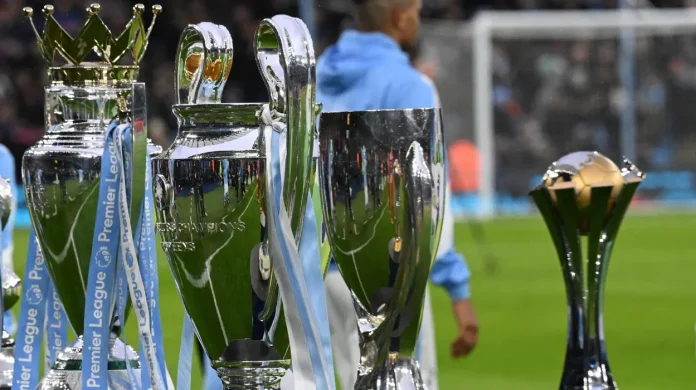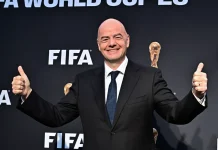FIFA once again stated its stand against playing domestic league-games outside the country of domicile and claimed that such a step undermines the organizational structure of the sport and the culture of the sport.
The last tours of the organization were called foreign matches, a poisonous trend to destroy the culture of the grassroots fans and distort the level of competitions. This position has resonated with European football supporters and policy-makers that see the relocation of league matches as a betrayal of the classical ideal of the sport.
Ronan Evain, the manager of Football Supporters Europe, has also condemned this pattern, saying that the idea of taking league matches elsewhere would disenfranchise committed fans and commercialize the game to the detriment of the community it serves. The wider fan/campaign pressure backlash can be seen as an extension of an implicit belief that cultural values of the sport are becoming second place to profitability ambitions.
The commercial realities driving global expansion
European leagues are currently pursuing international expansion in commercial terms even though FIFA is against it. The match between Villarreal and Barcelona will take place in Miami in La Liga and the match between AC Milan and Como will take place in Perth, Australia in Serie A. Such matches are aimed at attracting new audiences, increasing the global presence and acquiring profitable broadcasting rights.
The motive is following the lead of the best sports leagues in the US like NFL and NBA which never miss the chance of playing a game abroad to expand their fan base. The economic rationale behind this is very strong in the case of African clubs on the continent: overseas visibility equates to brand equity, merchandise sales, and sponsorship deals, particularly in the swiftly developing markets of Asia and North America, as well as the Middle East.
Clubs and federations navigate FIFA’s resistance
FIFA’s resistance to such games is an administrative obstacle, but not an inevitable one. In April 2025, an American legal settlement permitted match organizer Relevent Sports to resume efforts to host European games domestically once again. The decision revealed the extent of FIFA’s bargaining power as a regulator when encountered with commercial rights holders that operate under national legal frameworks.
This agreement heralds a shift, potentially undermining FIFA’s long-standing prohibitions on international game relocations. Leagues can now seek overseas games with more legal assurance, most notably in jurisdictions where FIFA’s control is relatively limited.
The contradiction in FIFA’s regulatory approach
Critics highlight that FIFA’s policy stance is weakened by its uneven implementation. FIFA has warned La Liga and Serie A about international games, but it is fairly low-key about similar aspirations in the Premier League, where 11 out of 20 teams have U.S.-based owners. The Premier League’s previous consideration of a 39th game abroad has never quite been doused and there are ongoing internal discussions despite public refusals.
The imbalance in FIFA’s handling of different leagues’ worldwide ambitions is a reflection of the organization’s reluctance to openly confront strong commercial interests. This discriminatory practice is susceptible to regulatory hypocrisy since FIFA is simultaneously presenting a facade of traditional defense while exercising market-driven determinations behind closed doors.
Inconsistent messaging and declining control
This inconsistency demonstrates a more profound structural tension within FIFA. Its regulatory position requires maintaining domestic match integrity, yet its global events such as the Club World Cup and friendlies are more typically reconciled with the same commercial interests. The inconsistency is not about opposing commercialization but about drawing ad hoc distinctions about what kind of global engagement is permissible.
As organizers of the league gain more independence and legal expertise, FIFA’s capacity to enforce normalized policy becomes increasingly tenuous. The contradiction erodes stakeholder trust and jeopardizes FIFA’s prospective leadership in shaping the strategic direction of global football.
Fan opposition versus commercial ambitions
Pressure from overseas league games has faced robust resistance from fans who have seen such moves as selling out to tradition and the community. The local identity of football and home-grown heritage remains at the center of the matchday experience for a terrible lot of people. Taking games away undermines these emotional and pragmatic bonds, making fans feel marginal to their clubs’ decision-making.
In a 2025 survey of over 2,300 European football fans, nearly 80% opposed staging regular-season games abroad. Supporters’ groups, such as the Tottenham Hotspur Supporters Trust, have labeled such proposals “an abomination” and threaten to alienate core support and undermine club identity.
Economic logic undermines cultural concerns
Overriding strong protests from supporters, leagues continue to refer to commercial advantages. Broadcasters and sponsors, eager to gain access to new markets, are prone to campaign for world matches as a bargaining chip for new contracts. Pressure that follows goads clubs into exchanging short-term gain against long-term reputation risk.
This strain reflects a wider trend towards football administration, where traditional interests such as local communities and fans are increasingly pushed to the periphery in the face of global commercial interests. The problem is how to reconcile these conflicting pressures without doing permanent damage to the sport’s fundamental values.
Political and institutional dimensions
The row has distracted from the world of football. EU Sports Commissioner Glenn Micallef warned in May 2025 that starting European league matches in non-European venues is “a betrayal” of the sport’s cultural heritage. He maintained that football is in one piece if it adheres to national and regional identity, drawing parallels with the abortive European Super League proposal in 2023.
Micallef’s action signals growing political interest in how the globalization of football is governed. The European Commission is considering proposals to limit the transfer of domestic matches outside the EU, on both regulatory deficits and cultural protection grounds.
UEFA’s cautious approach
UEFA, without openly supporting FIFA’s position, objected to the potential consequences of international match relocations. President Aleksander Ceferin acknowledged the dangers of overextending markets but conceded that UEFA may be limited if national federations provide consent. This points to an institutional dilemma: regulators find themselves situated in a middle ground between regulatory duties and greater extents of independence for national leagues.
The issue is set to be the focus of the next UEFA executive committee meeting under increasing pressure to adopt a clearer position. Its outcome will have implications for European football’s alignment or divergence with FIFA’s broader governance strategy.
The implications of FIFA’s contradictory position
FIFA is now at a crossroads. Its dual role as guardian of football tradition and enabler of commercial growth is ever more untenable. By condemning matches abroad without applying the same policy to leagues, FIFA risks undermining its own impartiality as regulator.
This disparity is an open invitation to scrutiny from stakeholders who want transparency and equity in the rule-making process. Unless FIFA defines a clear strategy that balances cultural conservation and international expansion, it stands to lose its control over the evolution of the sport over the next decade.
The question is not whether there are going to be international games there already but whether FIFA will shape the future of this phenomenon or just react to it. Its decision will have a permanent effect on club administration, confidence among fans, and football’s competitive integrity.
This individual has testified on the subject, deploring the increasing commercial encroachment of football and calling on the regulators to follow policy in line with supporters’ interests and the cultural heritage of football:
🚨 News: UEFA President Aleksander Čeferin told POLITICO that competitive European football matches should NOT be played outside Europe, as Spanish and Italian authorities plan to take games to the U.S. and Australia this season. pic.twitter.com/unyWawnaL0
— Ali Walker (@AliWalker24) August 28, 2025
What happens next will decide how football balances local roots and global ambitions. With leagues growing more assertive and legal channels widening, the role of trustees like FIFA can turn into wise stewardship or irrelevance depending on their ability to move decisively and justly in the face of rising pressures.













